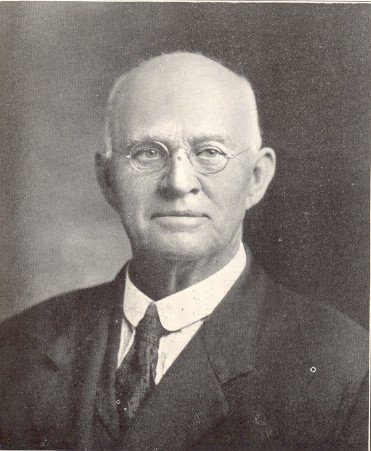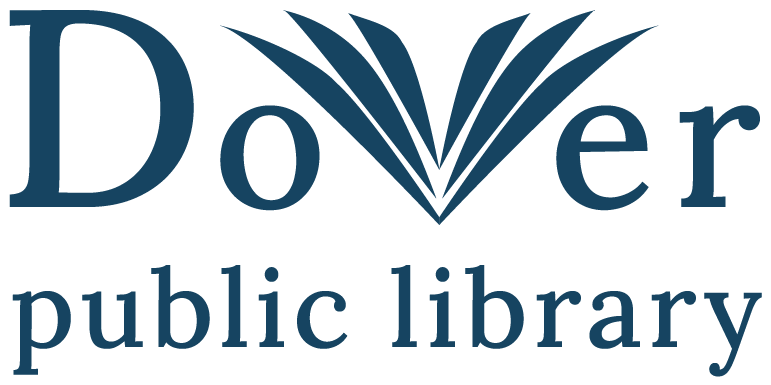Disclaimer
The Dover Public Library website offers public access to a wide range of information, including historical materials that are products of their particular times, and may contain values, language or stereotypes that would now be deemed insensitive, inappropriate or factually inaccurate. However, these records reflect the shared attitudes and values of the community from which they were collected and thus constitute an important social record.
The materials contained in the collection do not represent the opinions of the City of Dover, or the Dover Public Library.
Millworker - Mr. Thomas Cash

Mr. Thomas Cash
Our Oldest Employee, the Cornerstone of Our Personnel
Cocheco Chats, May 1921
Mr. Thomas Cash may well feel proud in holding the undisputed title of the oldest employee of these mills. Fifty-eight years of continuous service- a lifetime employment with one concern. What a remarkable record! A record that not alone Mr. Cash, but every one of us can feel proud of- proud because we know him who made that record and proud that we work for a company that can hold an employee continuously throughout his lifetime.
Mr. Cash first started work as a lap boy in No. 3 Card Room in 1863, working his way up by constant efficient service, until he reached his present position as Overseer of the Yards in 1906. Everyone in the plant knows “Tom” for he has been in the forefront of plant activities for a great many years. His hearty, hail and cheery smile are a pleasure to all of us.
Following his first employment in No. 3 mill- this was the old mill many years before the construction of the present building- he went to work in the Print Works, where he stayed for about two years. He then entered the weave room in lower No. 5, and was made second-hand of upper No.5 weave room a half century ago. Mr. Cash had charge of the starting up of the old Dover looms in 1882 when the present No. 3 mill was built. After many years as a weave room second-hand in the Upper Yard, Mr. Cash went to No.1 mill where he had charge of the lower and then the upper weave rooms. He became overseer of weaving in No.1 in 1901, ably filling that position until 1906, when he took charge of the yard and outside activities of the plant.
Mr. Cash was born in Ireland in June, 1851, and came to Dover in June,1852. He was educated in the public schools and has made his home here ever since. He married Miss Margaret A. Cassily on August 28, 1869. Mrs. Cash was born in Dover and her family history was closely interwoven with the early history of these mills. Among Mrs. Cash’s ancestors were John McDavitt and John Burns, two of the first overseers of the Cocheco Mills. Her family at one time owned most of the land upon which No.1 mill now stands.
It is indeed a rare pleasure to hear Mr. Cash relate the many changes that have taken place here during his lifetime of service. Amongst them we note a few that will be of interest to all who know this plant only in it present form.
Where No. 2 mill now stands there used to be a shop of three floors, the first floor of which was devoted to the manufacture of boxes, the second was the bobbin shop, while on the third floor were made the loom harness. A ladder of more than one hundred steps used to lead down from the Main street side to the box shop. At the time recalled by Mr. Cash, almost fifty years ago, the overseer of the box shop was Wells Waldron; of the bobbin shop, George Quint; and the harness shop was in charge of Winslow Hall, the father of Andrew Hall of Grove Street.
Instead of the present warpers and slashers, the dressing used to be done by what were called dressing machines. A big machine upon which the loom beams were wound and dressed directly from the spools. It was necessary to climb two flights of steps to take off the beam at the top. The first slasher was brought from England and installed on next to the top floor of old No. 4 mill.
During the days before the coming of the railroad, coal was brought up the river in schooners and stored where the bridge on Washington Street now spans the river.
There are so many more interesting things that it would take several pages to relate them all. We shall reserve them for another article in some future date.
This historical essay is provided free to all readers as an educational service. It may not be reproduced on any website, list, bulletin board, or in print without the permission of the Dover Public Library. Links to the Dover Public Library homepage or a specific article's URL are permissible.
